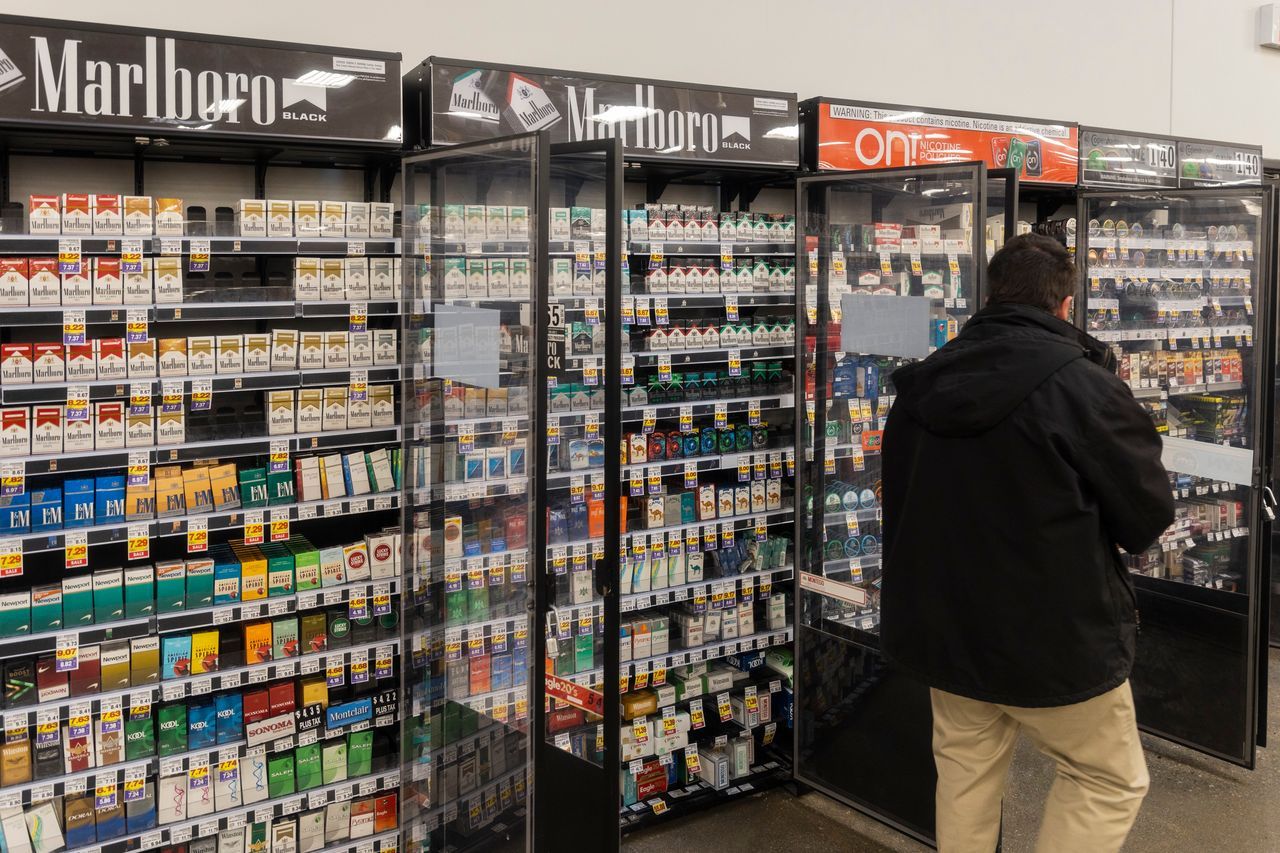New Zealand rolled back its plans to ban cigarette and tobacco sales, dealing a major blow to a global antismoking movement that had picked up pace in recent years.
Leaders of New Zealand’s new conservative government said this week they planned to undo an antismoking law set to take effect next year, in part to generate revenue from sales of tobacco and vaping products. The watershed law, which passed last year under former Prime Minister Jacinda Ardern, would have banned anyone born after 2008 from buying the products in the country.
The new rules would have been the first of their kind, and were heralded by public health experts as an important step in moving the issue forward, and limiting the harmful impacts of smoking.
Smoking has been going out of style in many countries since the mid-20th century, when people became more aware of the risks. Smoking can lead to many different illnesses, including cancer, heart disease and lung diseases.
Though New Zealand’s restrictions were new in their scope and scale, other countries have curbed cigarette use in the last two decades. The World Health Organization said there are national antismoking laws in 74 countries, encompassing more than a quarter of the world’s population. Every country in South America had adopted a national smoke-free policy by the end of 2020, according to the WHO.
The WHO estimated this year that about 1.3 billion people use tobacco. About eight million people die annually from tobacco-related health issues, including more than a million nonsmokers who inhale secondhand smoke.
Younger people have increasingly turned to e-cigarettes, or vapes, as an alternative, even though the devices carry dangers of their own.
There are a patchwork of smoking regulations around the world, from local restrictions to national bans on smoking in public places. Here is a look at some of the countries with antismoking rules:
New Zealand
New Zealand’s progressive leaders in December 2022 adopted one of the world’s strictest cigarette bans. The law set out to ban tobacco sales for younger generations, limit nicotine levels in cigarettes and curb the number of stores allowed to sell tobacco. The new right-wing government told Radio New Zealand that it wanted to get rid of the law to avoid creating a black market for tobacco and instead use legal cigarette purchases to offset tax cuts.
Australia
Australia has banned smoking in enclosed public places including schools, office buildings and airports. Health officials are also taking aim at e-cigarettes, saying this week they would ban imports of single-use vapes starting next year. The country already has a high tax on tobacco and rules against advertising smoking products.
Canada
Canada announced in May that it would become the first country to require that health warnings be printed on every individual cigarette. Carolyn Bennett, at the time Canada’s minister of mental health and addictions, said the label “will provide a real and startling reminder of the health consequences of smoking.” The country sets a maximum nicotine-concentration level for vaping products and levies a tax of about $1.87 Canadian dollars for a pack of 200 cigarettes.
France
French leaders said Tuesday they planned to forbid smoking in public parks, on beaches, in forests and near schools. The move threatens a longstanding pastime in a country where almost a fifth of people aged 15 and older smoke daily, according to a government report last year.
The French government said it wanted a tobacco-free generation by 2032. The country in 2007 banned smoking in indoor public places, including workplaces and schools.
Ireland
Ireland in 2004 became the first country in the world to ban smoking in indoor public spaces, including workplaces, restaurants and bars.
Japan
The country taxes tobacco purchases and restricts smoking in public space to designated areas, according to the WHO. It was once common for people to smoke in indoor public areas such as bars and restaurants but in recent years there are fewer people openly smoking.
Mexico
Mexico in January implemented one of the world’s strictest antismoking policies, banning smoking in any public space and prohibiting advertising for tobacco.
Russia
Smoking is banned in public places in Russia and anyone who does so can be fined, according to the WHO. The country increased its tax rates on products containing nicotine and tobacco. The WHO reported last year that 29% of adults in the country smoke tobacco.
United Kingdom
Prime Minister Rishi Sunak said last month that he wanted to create a smoke-free generation by preventing anyone born in 2009 or later from buying tobacco products.
Smoking was outlawed in indoor public spaces and enclosed areas as early as 2007, with some public outdoor spaces also included in the ban. Stores are restricted from displaying tobacco products.
Some on the right of Sunak’s ruling Conservative Party have questioned the policy as illiberal, suggesting it could create a black market for tobacco products.
United States
There is no ban at the federal level in the U.S., though most states outside the South have some sort of restriction on indoor smoking. More than 30 states, including California, New York and Illinois, ban smoking at bars, workplaces and restaurants, according to the Centers for Disease Control and Prevention. A handful of other states have designated smoking areas at some of those sites or have no restriction at all.
—Suryatapa Bhattacharya and Gareth Vipers contributed to this article.
Write to Alyssa Lukpat at alyssa.lukpat@wsj.com



